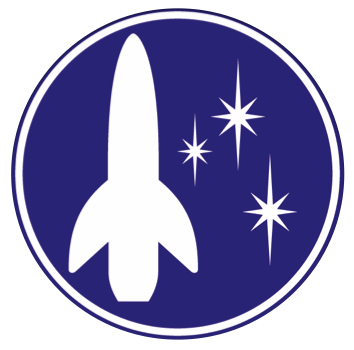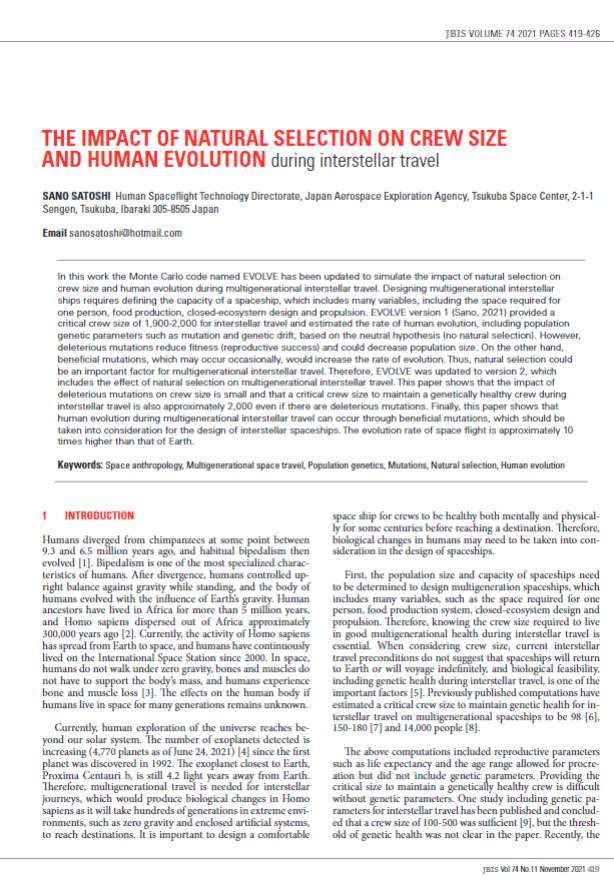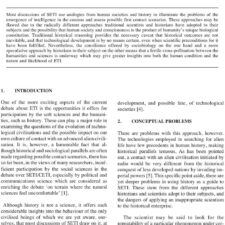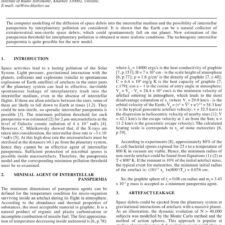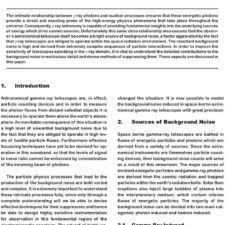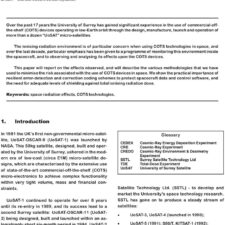The Impact Of Natural Selection On Crew Size And Human Evolution During Interstellar Travel
£5.00
S. Satoshi. (2021), JBIS, 74, pp.419-426
Refcode: 2021.74.419
Abstract:
In this work the Monte Carlo code named EVOLVE has been updated to simulate the impact of natural selection on crew size and human evolution during multigenerational interstellar travel. Designing multigenerational interstellar ships requires defining the capacity of a spaceship, which includes many variables, including the space required for one person, food production, closed-ecosystem design and propulsion. EVOLVE version 1 (Sano, 2021) provided a critical crew size of 1,900-2,000 for interstellar travel and estimated the rate of human evolution, including population genetic parameters such as mutation and genetic drift, based on the neutral hypothesis (no natural selection). However, deleterious mutations reduce fitness (reproductive success) and could decrease population size. On the other hand, beneficial mutations, which may occur occasionally, would increase the rate of evolution. Thus, natural selection could be an important factor for multigenerational interstellar travel. Therefore, EVOLVE was updated to version 2, which includes the effect of natural selection on multigenerational interstellar travel. This paper shows that the impact of deleterious mutations on crew size is small and that a critical crew size to maintain a genetically healthy crew during interstellar travel is also approximately 2,000 even if there are deleterious mutations. Finally, this paper shows that human evolution during multigenerational interstellar travel can occur through beneficial mutations, which should be taken into consideration for the design of interstellar spaceships. The evolution rate of space flight is approximately 10 times higher than that of Earth.
